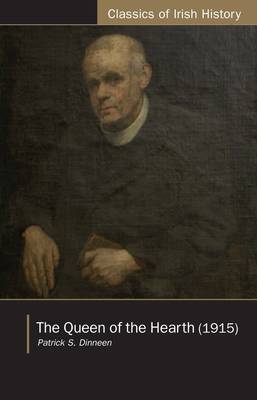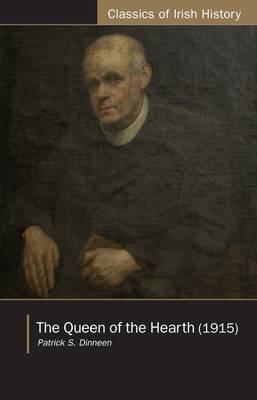
Je cadeautjes zeker op tijd in huis hebben voor de feestdagen? Kom langs in onze winkels en vind het perfecte geschenk!
- Afhalen na 1 uur in een winkel met voorraad
- Gratis thuislevering in België vanaf € 30
- Ruim aanbod met 7 miljoen producten
Je cadeautjes zeker op tijd in huis hebben voor de feestdagen? Kom langs in onze winkels en vind het perfecte geschenk!
- Afhalen na 1 uur in een winkel met voorraad
- Gratis thuislevering in België vanaf € 30
- Ruim aanbod met 7 miljoen producten
Zoeken
€ 28,95
+ 57 punten
Omschrijving
Father Patrick Dinneen is justly famous as the compiler of Focloir Gaedhilge agus Bearla / An Irish-English Dictionary. His ideas reached a fairly wide audience in the nationalist community through his Irish-language column in The Leader, a column he contributed to with very few exceptions every week for more than twenty years. As the first real columnist writing in Irish, Dinneen used these newspaper pieces to deal with an impressively diverse range of topics, from American racism, to English poetry, to the history and literature of ancient Greece and Rome, but predictably enough he devoted most of his attention to Irish affairs, leaving readers in little doubt about his feelings on issues of the day such as Home Rule, education, the labour movement, the Easter Rising, the Civil War. Father Patrick Dinneen was a prolific and highly opinionated controversialist, engaging with gusto in almost all of the political and cultural debates in Ireland in the first three decades of the twentieth century.The Queen of the Hearth is a significant document, as an insight into the ideas of a major Irish-Ireland intellectual on one of the most important political, social, and moral questions of his time. It is an extended insight into the kind of thinking that lies behind the articles dealing with women and the family in DeValera's 1937 Constitution. This intriguing work offers the original text preceded by a general introduction by leading Irish studies scholar Philip O'Leary.
Specificaties
Betrokkenen
- Auteur(s):
- Uitgeverij:
Inhoud
- Aantal bladzijden:
- 152
- Taal:
- Engels
- Reeks:
Eigenschappen
- Productcode (EAN):
- 9781906359720
- Verschijningsdatum:
- 15/09/2013
- Uitvoering:
- Paperback
- Formaat:
- Trade paperback (VS)
- Afmetingen:
- 119 mm x 183 mm
- Gewicht:
- 181 g

Alleen bij Standaard Boekhandel
+ 57 punten op je klantenkaart van Standaard Boekhandel
Beoordelingen
We publiceren alleen reviews die voldoen aan de voorwaarden voor reviews. Bekijk onze voorwaarden voor reviews.









